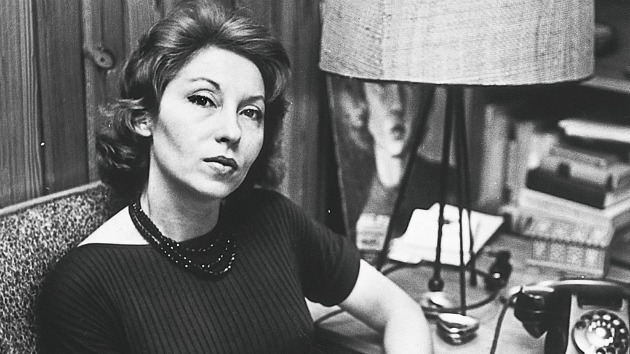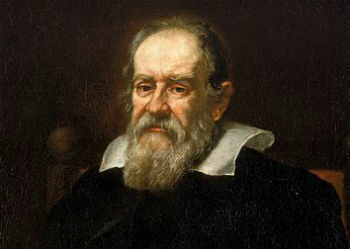Clarice Lispector she was one of the most outstanding writers of the third phase of Brazilian modernism, called "Geração de 45".
She received several awards, including the Federal District Cultural Foundation Award and the Graça Aranha Award.
Biography of Clarice Lispector

Haya Pinkhasovna Lispector was born on December 10, 1920 in the Ukrainian city of Chechelnik.
Descendant of Jews, parents of her Pinkhas Lispector and Mania Krimgold Lispector, passed the first moments in Clarice's life fleeing the persecution of Jews during the Russian Civil War (1918-1920).
Therefore, they arrived in Brazil in 1921 and lived in the cities of Maceió, Recife and Rio de Janeiro, where they had some financial difficulties.
Since she was a little girl, Clarice studied several languages (Portuguese, French, Hebrew, English, Yiddish) and took piano lessons. She was a good student at school and liked to write poems.
After her mother's death in 1930, Clarice finishes the third year of primary school at Collegio Hebreo-Idisch-Brasileiro.
Later, her family moves to Rio de Janeiro. In 1939, at the age of 19, she enters the Law School of the University of Brazil and begins to dedicate herself completely to her great passion: literature.
She took courses in anthropology and psychology and, in 1940, published her first short story, entitled “Triumph”.
After her father's death in 1940, Clarice began her career as a journalist. In the following years, she worked as a copywriter and reporter at Agência Nacional, Correio da Manhã and Diário da Noite.
In 1943, she marries Diplomat Maury Gurgel Valente, with whom she had two children. Her firstborn, Pedro, was diagnosed with schizophrenia. His second son, Paulo, was the godson of the writer Érico Veríssimo.
Due to her husband's profession, Clarice has lived in many countries around the world, from Italy, England, Switzerland and the United States. The relationship lasted until 1959, and when they decided to separate, Clarice returned to Rio with her children.
The writer was naturalized Brazilian and declared herself from Pernambuco. Her name, Clarice, was one of the ways her father found to hide his entire family when they arrived in Brazil.
Clarice died on December 9, 1977, the day before her 57th birthday, in the city of Rio de Janeiro, victim of ovarian cancer.
Curiosities
- Clarice fell in love with who would become her close confidant friend, the writer Lúcio Cardoso (1912-1968), however, they did not stay together because Lúcio was homosexual.
- A remarkable episode in her life was the fire that occurred in her house, in 1966, caused by a cigarette. As a result, she was hospitalized for months and nearly had to amputate her hand.
Major Works by Clarice Lispector
Known as one of the best Brazilian writers, Clarice wrote novels, short stories, chronicles, children's literature.
With a singular and strong personality, she didn't care about the criticisms and, according to her:
“I write without hope that what I write will change anything. It doesn't change anything... Because deep down we don't want to change things. We are wanting to blossom in one way or another...”.
Some of her works:
- Near the wild heart (1942)
- The Chandelier (1946)
- The Besieged City (1949)
- Family Ties (1960)
- The Apple in the Dark (1961)
- The Foreign Legion (1964)
- The Passion According to G. H (1964)
- The Mystery of the Thinking Rabbit (1967)
- The Woman Who Killed the Fish (1968)
- An Apprenticeship or The Book of Pleasures (1969)
- Clandestine Happiness (1971)
- Living Water (1973)
- The Imitation of the Rose (1973)
- Via Crucis do Corpo (1974)
- Where Have You Been at Night? (1974)
- Vision of Splendor (1975)
- The Hour of the Star (1977)
Poems by Clarice Lispector
Although her poetry does not use the form in verse, Clarice stood out with her poems full of lyricism. Check out some below:
But there is Life
but there is life
that is to be
intensely lived, there is love.
that has to be lived
to the last drop.
Without any fear.
Do not kill.
dangerous star
dangerous star
face in the wind
swell and silence
take porcelain
submerged temple
wheat and wine
sadness of lived thing
trees already bloomed
the salt brought by the wind
knowledge by incantation
idea skeleton
now for nobis
decompose the light
star mystery
passion for accuracy
hunting fireflies.
Firefly is like dew
Dialogues that disguise conflicts
for exploding
It can be as poisonous as mushrooms sometimes are.
In the dark eroticism of full life
knotty roots.
Black Mass, sorcerers.
In proximity to sources,
lakes and waterfalls
arms and legs and eyes,
all the dead mingle and cry out for life.
i miss him
as if I was missing a tooth in front:
excruciating.
What a happy fear,
to wait for you.
Precision
what reassures me
is that everything that exists,
exists with absolute precision.
Anything the size of a pinhead
does not overflow even a fraction of a millimeter
beyond the size of a pinhead.
Everything that exists is of great accuracy.
It's a pity that most of what exists
with that exactness
is technically invisible to us.
The good thing is that the truth comes to us
as a secret sense of things.
We ended up guessing, confused,
the perfection.
Meet the 16 greatest modern and contemporary Brazilian poets.
Phrases by Clarice Lispector
- “Freedom is not enough. What I wish has no name yet.”
- “My unbalanced words are the luxury of my silence.”
- “Thankfully, there is always another day. And other dreams. And other laughs. And other people. And other things.”
- “Even cutting your own defects can be dangerous. You never know what is the defect that sustains our entire building.”
- “But I want to have the freedom to say nonsense things as a deep way to reach you. Only wrong attracts me, and I love sin, the flower of sin.”
- “Fear has always guided me to what I want. And because I want it, I'm afraid. Many times it was fear that took me by the hand and took me away. Fear drives me into danger. And everything I love is risky.”
- “Surrender as I surrendered. Dive into what you don't know as I did. Don't worry about understanding, living surpasses any understanding.”
- “Yes, my strength is in solitude. I'm not afraid of stormy rains or big winds, because I'm also the dark of the night.”
Interview with Clarice Lispector
Check out Clarice Lispector's latest interview conducted by journalist Júlio Lerner. The video was shown on the program “Panorama”, on TV Cultura, on February 1, 1977, the year of the writer's death.


